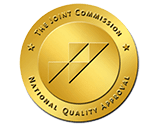No matter what anyone tells you – divorce is like a death in how it affects your life. You’ve lost a life you once knew, a partner you once loved, and you will grieve this loss for a long time. To add to the fall-out from divorce, you most likely will need to move, the structured life you’ve worked so hard to establish is disrupted, and if you have children, things become even more complicated as you try to balance parenthood. This all adds up to a major shift in your life, and now more than ever, your sobriety will be tested. But there is hope. You will be handling this divorce with a clear mind and an honest heart, and that is already a big tool in your sobriety toolbox. Below are six tips that can also help you put things into perspective, offer ways to help build a mountain of support, inspire hope, and let you know you are not alone during this stressful time.
All hands on deck
Divorce is a time to gather as much support as you can. This may come in different forms as not only are you dealing with keeping your sobriety intact, you are also dealing with the emotional rollercoaster of divorce. So gather all the resources you need to deal with both issues together – as well as separately. This may come in the form of divorce support groups, 12-Step programs, a re-adjustment in medication for mental health disorders such as anxiety and depression, daily talks with your sponsor, and the love from your friends and family. Do not feel the pressure to do this work all at once; it can lead to feelings of anxiety – triggering a relapse. Just take this literally one step at a time. One day you can meet with your support group, and the next day, if you are too tired from all of the stress – take a bath, relax, and listen to an up-liting podcast on recovery. And remember, if things turn chaotic, none of your tools are working, you feel emotionally and spiritually wrecked, and are triggered to start using again – check back into your rehab center. The professional support and treatment, especially for co-occurring disorders, will get you through to the other side.
Therapy and self-care
During rehab, you had access to professional counselors that knew exactly what you were dealing with and how to help. Now, you need to utilize the same experts, but this time add in a therapist who specializes in addiction as well as divorce issues and/or family counseling (if children are involved). This is a crucial time to work with a counselor to pay special attention to the connections between your emotions and behavior – and to let go of what is not serving you. If you maintained a relationship with your counselor in rehab, this person already knows your story – making it that much easier to help you. Just remember, you are never alone.
In addition to traditional therapy, it’s time to think about other forms of self-care to keep you focused and healthy. Yoga, journaling, exercising, listening to music, and meditation are great additions to traditional therapy. These rituals will help you stay grounded and centered.
Remember what you can control, let go of what you can’t
You have the power and control in how you react to your ex, family, and to all of the drama that surrounds divorce. Remember this fact, especially when things become increasingly complicated and heavy. You also have the power to change things that can help reduce your stress and make life a little easier during this transition. Make a list of things you can change and what you need to wait on. Compartmentalizing small sections of your life that you can change, can help you stay focused on the present. If you attend a 12-Step group like AA, the Serenity Prayer is often recited. The first line of this prayer is powerful and the version below is a bit modified to help drive home the point of letting go of what you can’t control during a divorce,
“God, grant me the serenity
to accept the things I cannot change (your ex’s behavior, the end of a marriage, etc.)
the courage to change the things I can (your attitude and your reactions),
and the wisdom to know the difference.”
The Power of Forgiveness
Divorce brings out so many feelings from sadness, resentment, and anger to anxiety and bitterness. But one emotion tends to trump them all – guilt. During a divorce, the blame game is at an all-time high. Phrases such as, “You tore our family apart,” “I’ll never forgive you for the financial ruin you caused me” or “I blame you for this mess” are often exchanged between exes and this kind of anger can cause a major build-up of feelings of guilt and shame. These feelings can lead to low-self esteem, depression, and trigger a significant relapse. Whatever happened that led to the divorce, you need to forgive yourself. This may sound impossible, especially if your addiction was a factor in the separation. But remember, during rehab, you found the strength to get sober and forgive yourself. If you forgave yourself once – you have the power to do it again. Loving yourself can help release the feelings of guilt, anger, and shame that a divorce can cause, keeping triggers and temptations at bay.
Wanting to find ways to stay on track with your recovery is a good sign that you have what it takes to stay strong and sober during a divorce. And remember, just like most things in life – your divorce is temporary, this too shall pass, and a better, sober life is waiting for you on the other side of this. Take these tips in stride, do what you can, and understand that it’s about progress, not perfection. If you or someone you know is struggling with addiction or a substance use disorder and needs help, please reach out to Silver Lining Recovery for a free consultation at 866-681-0927.







